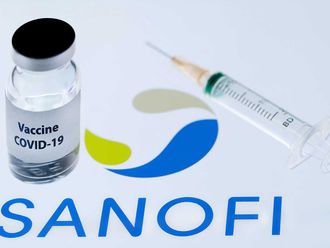Hong Kong: Asian currencies advanced last week, led by South Korea's won and Thailand's baht, as Greece took steps to cut its budget deficit and signs regional central banks will gradually raise interest rates prompted investors to buy higher-yielding assets.
Malaysia's central bank increased its overnight policy rate by a quarter-point to 2.25 per cent on March 4, joining Australia, China and India in reining in monetary stimulus. Regional currencies also advanced on speculation China will resume appreciation in the yuan. Options traders are more bullish on the yuan than any other currency as growing exports an accelerating inflation may overcome China's vows to maintain a 20-month dollar peg.
"The Greece stuff has led to stock markets going up and sentiment improving," said Tae-Shin Park, a currency and bond trader at Societe Generale SA in Seoul.
Strongest level
"Positions for yuan appreciation are quite heavy in China, so I think once more risk appetite comes in, emerging markets will outperform."
The won climbed 1.7 per cent from the end of last week to 1,140.3 per dollar as of the 3pm close in Seoul, the strongest level since January 21, according to data compiled by Bloomberg. Thailand's baht rose 1.2 per cent to 32.64 and Malaysia's ringgit climbed 1.1 per cent to 3.3635.
Global bond funds received $2.6 billion (Dh9.54 billion) in the week to March 3, the biggest inflows since at least 2000, EPFR Global, a Cambridge, Massachusetts-based research company, said yesterday in an e-mailed statement.
Greece on March 4 sold 10-year bonds with investors bidding for more than three times the 5 billion euros (Dh24.95 billion) it sought to raise. Tax increases and pay cuts for government employees outlined on March 3 were designed to guarantee Greece would meet a January pledge to trim its deficit to 8.7 per cent of gross domestic product from 12.7 per cent.
Malaysia's ringgit completed a fourth weekly gain after the central bank raised its benchmark interest rate and signalled the nation's economic recovery is "firmly established".
The ringgit may appreciate 5.2 per cent in 12 months as gains in crude and palm oil prices spur a recovery in exports, according to Barclays Capital. Higher rates and improving growth may push the ringgit to its strongest level this year in the near term, according to Brown Brothers Harriman & Co.












